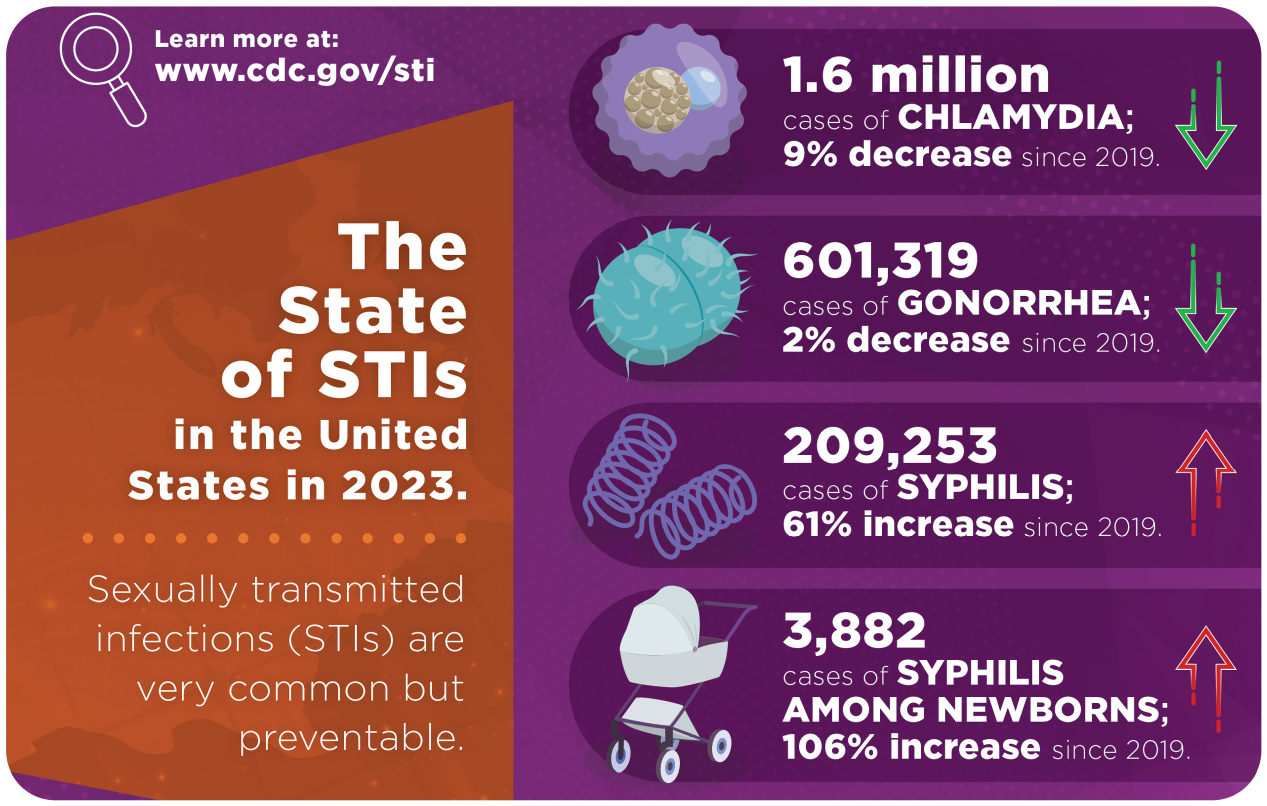

STI/STD TREATMENT AND TESTING
Sexual activity not only puts you at risk for pregnancy but also for sexually transmitted infections (STI) and sexually transmitted diseases (STD). It’s important to ensure that you safeguard yourself regardless of what your intention may be for your pregnancy. If you are sexually active, you should be tested for STI/STDs on a regular basis.
STI and STD: What’s the Difference?
Sexually Transmitted Infections (STIs), also referred to as Sexually Transmitted Diseases (STDs), are infectious diseases transmitted through sexual activity. Because STIs/STDs don’t always cause symptoms, they may go unnoticed until complications occur and cause damage to you and to your partner. When you give birth or have an abortion your cervix can be exposed to any infection you may have contracted, causing you to be vulnerable to a more severe Pelvic Inflammatory Disease (PID). PID causes constant pelvic pain, infertility problems and can lead to death if left untreated. In addition, you can spread the disease anytime you engage in sexual activity.


Treatment
Some STI/STDs can be treated and cured with medications, but early detection is key for effective treatment. Other STI/STDs cannot be cured but symptoms can be managed. If you think you have an STI/STD, make an appointment with us to discuss your concerns.
Mid Cities Women’s Clinic offers limited STI/STD testing and can provide orders to get treatment.
Other Related Articles
4 Reasons Why You Need to Get Tested for STIs/STDs
It’s an unfortunate fact that if you’re sexually active, you’ve likely been exposed to an STI/STD. You may be thinking about getting tested, but, let’s be real—it can feel embarrassing. You should never feel ashamed for taking charge of your health! Today, we’re...
Is it possible that I have an STI/STD?
Do you know if you are at risk for having an STI/STD? If you are sexually active, or perhaps you have been with the same partner for a while now, we strongly recommend that you get tested. Why? Because according to the Center of Disease Control (CDC), one in every...



